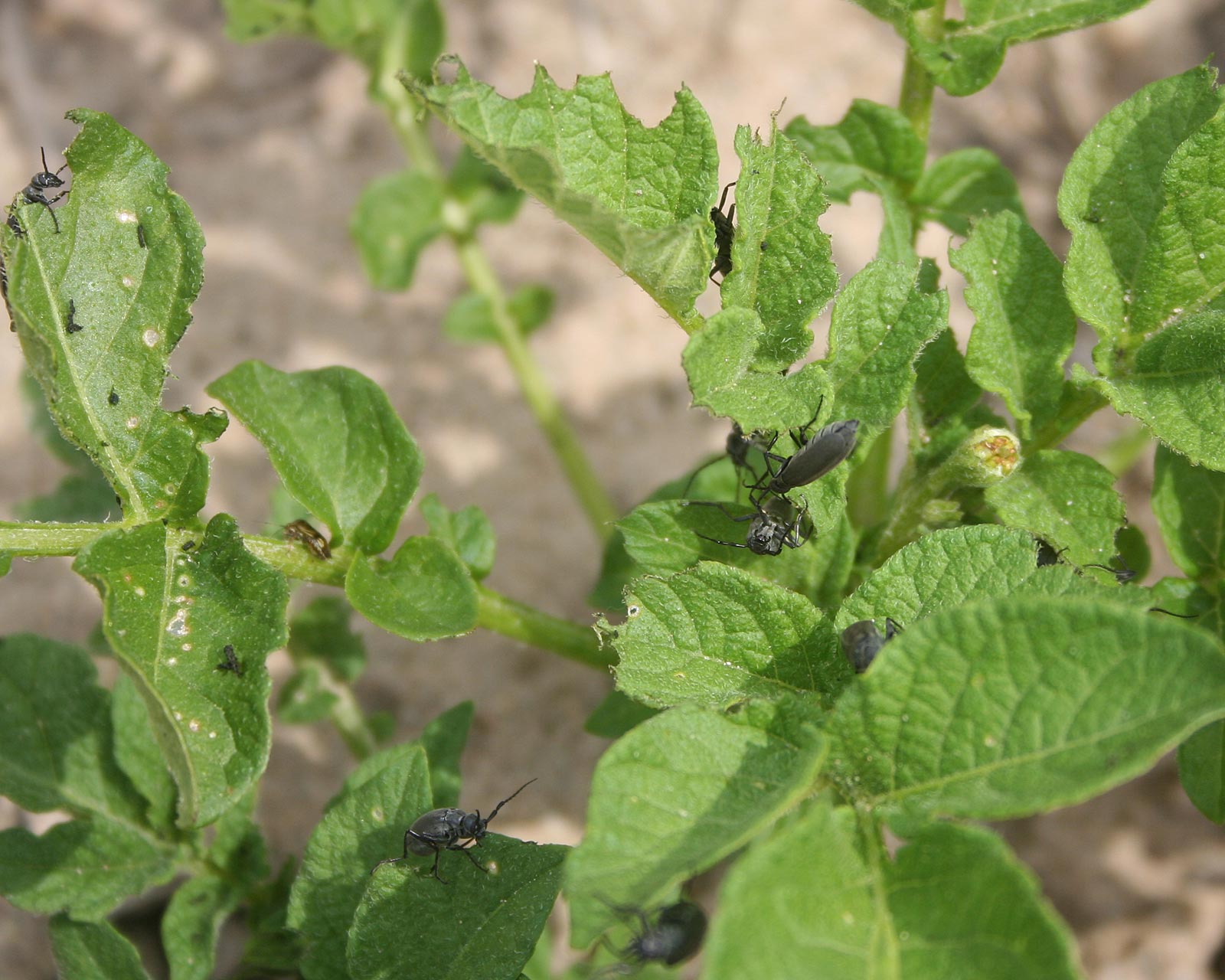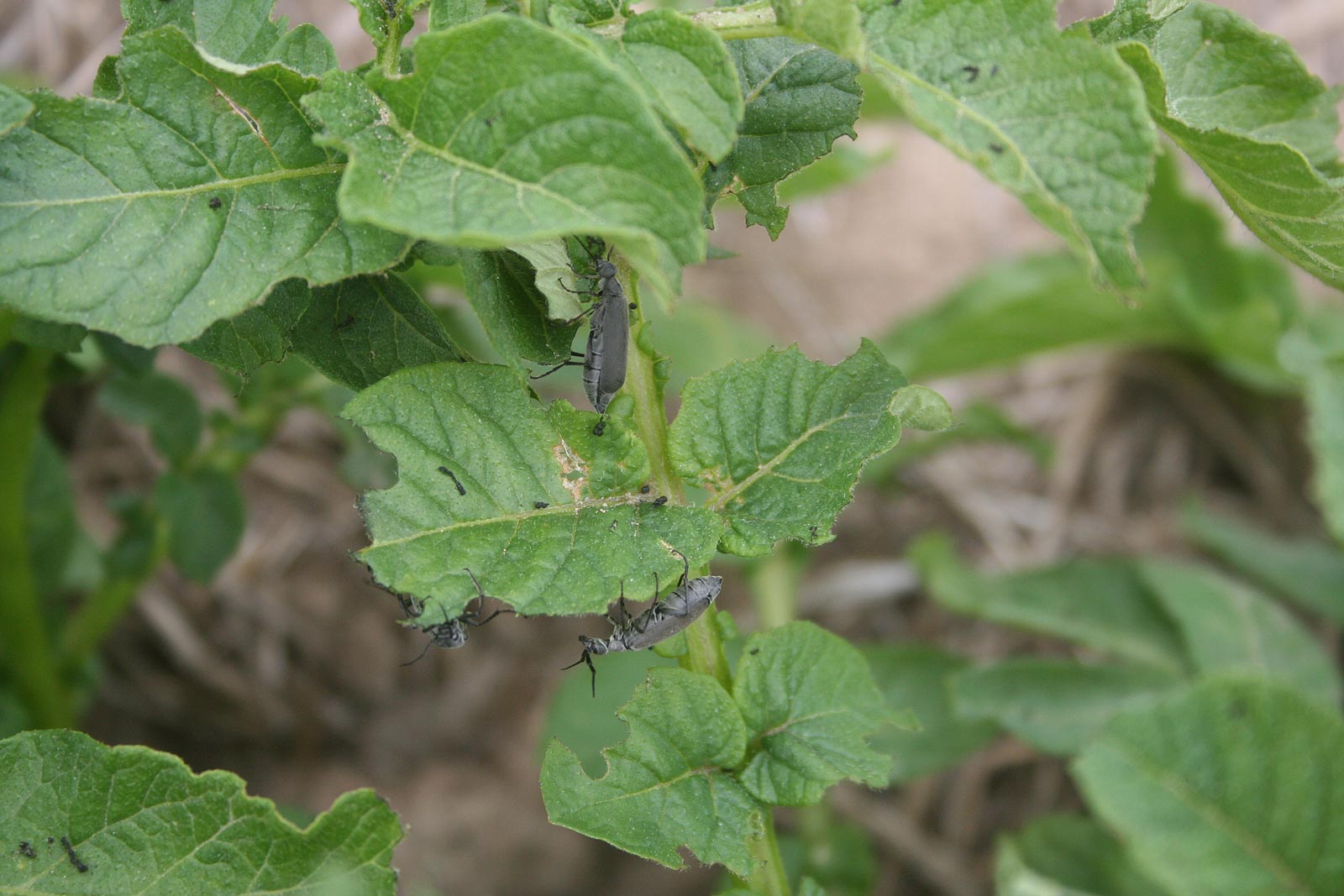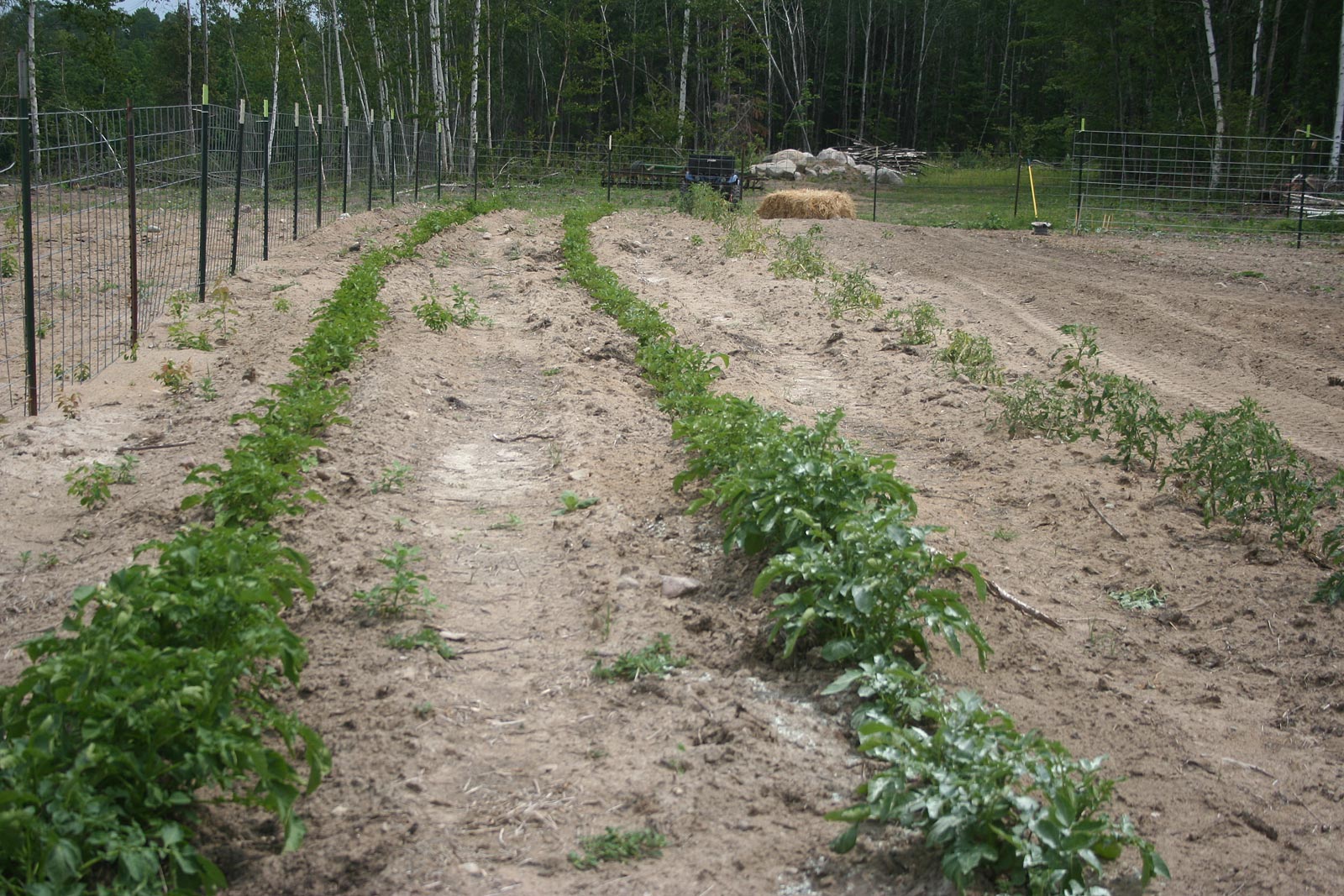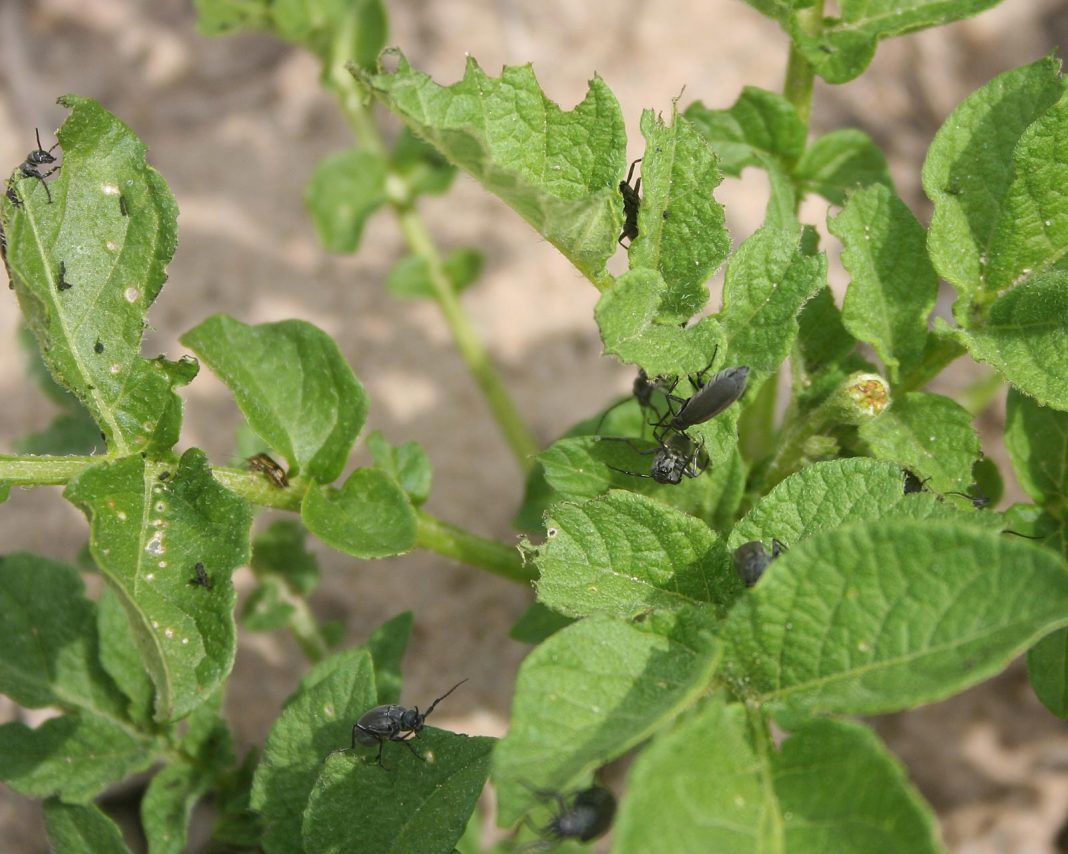No, not the Beatles. These are Blister beetles, and they are eating the tar out of our potato vines! I first saw them when I walked the two 100-foot rows the day before yesterday.

These longish, gray beetles fly in and start not only eating like hogs but procreating all through the leaves. I quickly ran the ATV home from the Wolf garden and brought back two cans of pyrethrin dust. One wasn’t full and the can and a half only did one row and not all of that. They didn’t seem to be in the red Bliss Triumph potatoes yet, so I dusted the Dakota Pearls. But on the morning of the Fourth of July, there were many more and they were on everything! So I ran to town, half expecting the stores to be closed. Not so. But nobody had pyrethrin dust; only chemical insecticide, which I won’t use. Finally, in the livestock department of Tractor Supply I found some pyrethrin, bought two big cans and came home. Then I finished dusting both rows well. Fortunately, they weren’t in the tomato rows, right next to the potatoes. (These were the extra tomatoes from the greenhouse I couldn’t bear to throw out.)


So, today, I’ll go back to the Wolf garden and check to make sure there are no more beetles on either the tomatoes or potatoes. And you can bet I’ll also check our main tomatoes in the Sand garden too. By keeping close watch on your garden, you can sure keep pests and disease under control before something awful happens. Unless it’s cows in the garden …”Yep, Will, you better get the electric fence around the North and Wolf gardens soon!”
Just a note: We just got a single spot opened up for our August seminar here at our homestead. A wonderful lady who had signed up to come is not able to do so. She is offering her deposit to someone who couldn’t otherwise afford to attend. If you’d like to take advantage of this nice offer, just email me at jackieclay2007@yahoo.com and I’ll give you the particulars. — Jackie




Blister beetles are lethal to livestock if squashed and the body juices are ingested. They also love alfalfa. In ND we have dealt with them about once each decade since we have been on our place (30 years). If you are putting up hay, use a sickle mower to lay it down and the beetles will leave as they hay dries. If you only have a machine with a conditioner, open the conditioner as wide as possible to minimize the stem crimping. The beetles will often pass through without being crushed. Also watch for them in any hay you buy for horses/cattle. Nasty buggers that they are. There is at least one horse owner in North Dakota who lost horses this summer due to blister beetle poisoning.
Wow! Luckily, we don’t have any alfalfa in our hay fields, huh? I didn’t know they were so toxic to livestock.
Deb and I want to come…again! But we really can’t. I hope it’s a wonderful seminar!!!
Pyro
Gee, we’d love to visit with you both again! Maybe some day you all can come for a visit???
Glad you caught the blister beetles in time, they are so destructive.Like you I try to walk my garden every day to catch any signs of insects early. I use the stuff you mix in water instead of powder. Do you just prefer the powder?
I use both but the powder seems to have quicker knock down. Not a beetle in sight the next day! Or two days later!!!
I was going to say “I’ve learned”, but I know I haven’t, because I don’t. I found out years ago it is the very best to visit all your vegetable garden each day, just because of what pests and disease you can find, before it gets out of hand. I should do that, but find myself being lazy sometimes, and then it’s too late. Now I’m fighting aphids on my squash, okra, and cucumbers!
I also find myself getting a little lazy some days as I’m busy doing something else and figure “What the heck? Tomorrow will be fine.” and find it’s not so. Daily walks is definitely best.
japanese beetles are eating everything in Nebraska as well. We caught them on apple tree before they got to pears. I’ll try pytherin dust.
It works great for me. Every year there seems to be a different pest! Keeps you on your toes.
My Colorado beetle infestation this year has me sworn off from growing potatoes ever again. Every day, sometimes twice a day, I pick dozens of beetles in the spring when the plants come up. And then many more larve and eggs. It’s annoyingly non-stop and has taken all the enjoyment out of growing potatoes. I sure hope permethrin does the job on your potatoes. Nothing seems to work for me.
It’s PYRETHRIN on the potatoes, not PERMETHRIN, which is a chemical we don’t use. Pyrethrin is a natural product, only affecting insects which are eating your plants. For potato beetles, give Bt a try. This is a biological, best used as a spray, starting when the very first sign of beetles shows up, then used weekly. Be sure to get one listed for potato beetles as the caterpillar kind doesn’t work as well on the beetles. I switch between pyrethrin powder and Bt and have had excellent results. As the beetles overwinter in the soil, it’s best to burn potato vines after digging potatoes and to be alert in the spring for new beetles. Please don’t quit!!!
I was wondering if you were going to have a get together this year, but missed the opportunity to sign up. If possible, would you send me the information (dates, etc) and if I can make it I would live to take her place. Thank you.
Bette Axiak
betteaxiak@gmail.com
(209-890-6757)
Yes we are; I sent you an email awhile ago about this. Your deposit from last year ensures your spot this year so you’re all set.
Does it work on Japanese beetles? We have new neighbors who have put traps. Guess what the traps are attracting? UGH. We haven’t had those pests for three summers. Now we have them in the front yard.
Yes, pyrethrin dust does work on Japanese beetles.
Does that work on Colorado potato beetles as well?
Yes, it sure does. I’ve used it to good results on our own potatoes a few years back. Haven’t seen a potato bug since!
Yikes! The Japanese beetles are really bad down here in Southern IL this year…I caught a bunch busy defoliating my cherry bushes. I’m so glad you caught them in time.
It sure makes a difference if you can get them spotted and treated before they get horrible.
Comments are closed.